The Evolution Of Martin Sheen
From rebel rouser to telly president and beyond…
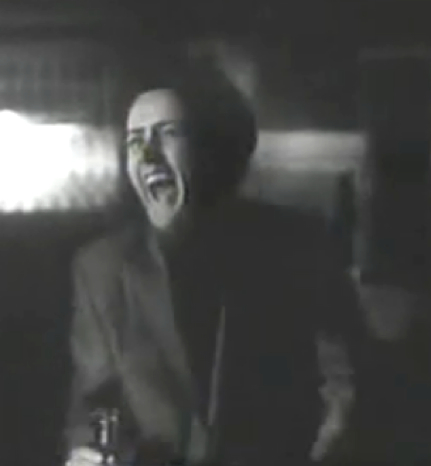
The Incident (1967)
He’d been acting on TV for around six years, mostly in soaps and guest roles on dramas like Mission: Impossible and, er Flipper.
His first film role was as one of two nasty punks who board a New York subway train and proceed to rough up a variety of passengers. Sheen’s baby face look gave his thug that much more of a chilling side – and it’s interesting to remember that he got his start on film largely playing bad guys.
Nepotunity: No other Sheens in this one. Charlie was two, Emilio and Ramon were five were five, and daughter Renee was a newborn.
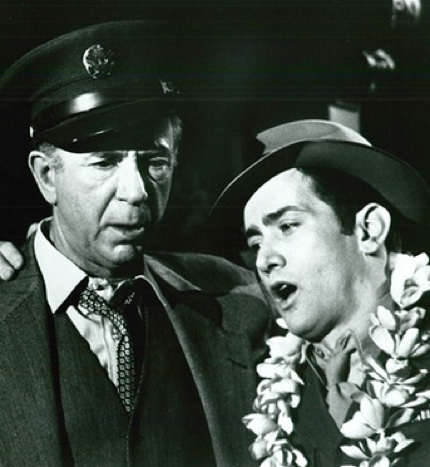
The Subject Was Roses (1968)
Adapted from the massively successful Broadway play – which nabbed two Tony Awards and the prestigious Pulitzer – Roses stars Sheen as Timmy Cleary, who returns home from serving in World War Two to find his happy family life with his parents is a façade.
It’s an early tour-de-force for the actor, who had plenty of time to master the role, since he and his co-stars had originated the roles on stage. Critics bitched that the version in cinemas wasn’t far enough away from the play, but it scored an Oscar for Jack Albertson and other nominations.
Nepotunity: It’s all but a three-hander (aside from some small other roles) so, nope.
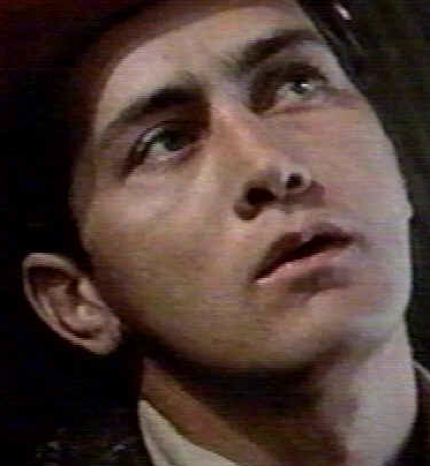
Catch-22 (1970)
A smaller part, but in a much more famous film, which finds Sheen as one of the bomber squadron stationed on the island of Pianosa during World War Two. Alan Arkin stars as the pilot who tries to get out of duty by claiming insanity.
Sheen joined an eclectic cast that included Arkin, Anthony Perkins, Art Garfunkel (yes, as in, “Simon and…”), Jon Voight, Charles Grodin and even Orson Welles.
Nepotunity: No Sheens on screen, but he took Emilio and Ramon to Italy with him for filming so they could visit his old home in Spain on a break.
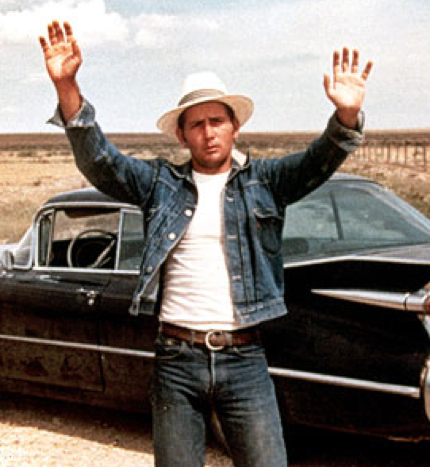
Badlands (1973)
Sheen bursts on to the Hollywood map properly with this career-boosting role as the 25-year-old, James Dean-obsessed Kit Carruthers who, with girlfriend Holly (Sissy Spacek), cuts a swathe across the States with a series of murders. The actor still considers the film to be his best work. He’s not wrong.
Terrence Malick refuses to sensationalise the events, and formed a close bond with the young thesp, and they bonded as friends. Sheen himself cites James Dean as one of his big influences, though thankfully he channelled it into acting and not a life of slaughter.
Nepotunity: Not on Malick’s watch!
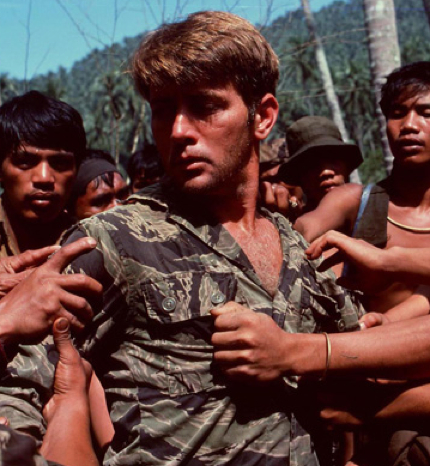
Apocalypse Now (1979)
Ah, yes – the other defining early role in Sheen’s career, which Sheen won after Francis Ford Coppola had him replace Harvey Keitel.
He filmed the scene in the hotel drunk, punched a real mirror and attacked Coppola. Oh, and he had a slight health scare: “I had a heart attack. I was all alone in the jungle and had to drag myself to the road to get help.”
Didn’t stop the film becoming a classic.
Nepotunity: More necess-tunity, since his brother Joe Estevez was shipped over to double for Marty while he was recovering from the heart problems.
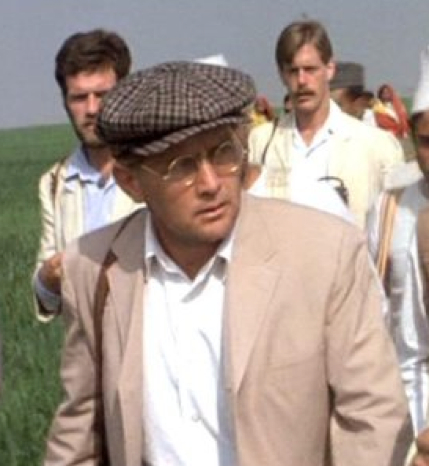
Gandhi (1982)
A smaller role again, but in another epic, Oscar-nabbing film – albeit without the heart problems and shooting issues.
Sheen is journalist Vince Walker, one of the few fictional characters in Richard Attenborough’s production, albeit partially based on real-life writer Webb Miller, who really did meet and become friends with Gandhi.
"It was only five or six weeks. But it was enough to make a profound impression on me, because I had been in the third world before but never that type of third world. The poverty was unbelievable.”
Nepotunity: He left the kids at home for this one.
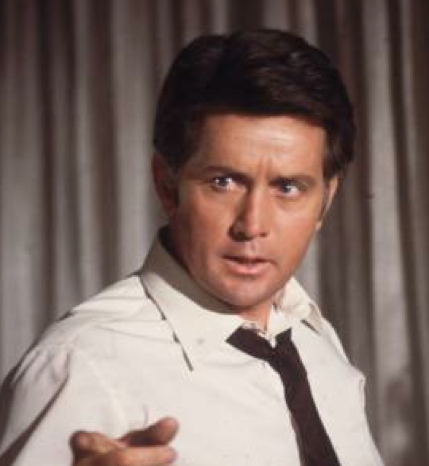
That Championship Season (1982)
Back playing a troubled man, Sheen is tom Daley, an alcoholic drifter who gathers with former teammates and their coach (Robert Mitchum) to reminisce about their legendary winning streak.
But, naturally, old resentments rise to the surface and the reunion quickly turns acrimonious.
It was written and directed by The Exorcist’s Jason Miler, who created the original play, and originally had plans for William Friedkin to direct Season.
Nepotunity: The kids came to visit him on the set, but they don’t crop up in the movie.
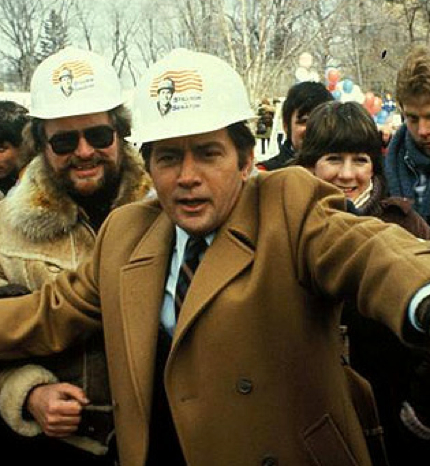
The Dead Zone (1983)
A meaty, villainous role in a film that upsets expectations (for all the weirdness around his psychic vision powers, Christopher Walken is the hero) and delivers one of Sheen’s nastiest characters.
Smooth-talking senator Greg Stillson is a man with presidential ambitions, but ultimate power on his mind and the actor plays it to the hilt.
He’s all charm and smarm until John Smith (Walken) gets too close to the truth – that Stillson plans to nuke Russia and launch a World War…
Nepotunity: Ramon Estevez crops up as a photographer who snaps damning evidence against Stillson.
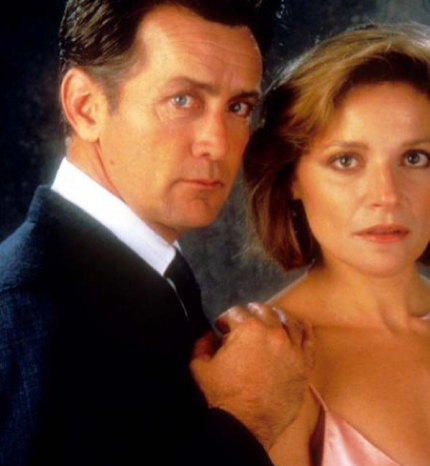
The Believers (1987)
Neo-noir meets horror and Sheen’s psychiatrist is forced to go on the run from a voodoo cult in New York.
He’s believably desperate as a man who tries to help the police battle the religious psychos, even as they target his son (played by Harley Cross) for a little sacrifice action.
It’s not exactly a high spot on his career chart, but he does dependable work in it.
Nepotunity: No Estevez/Sheen family members in this one. Probably a little too gory for ‘em.
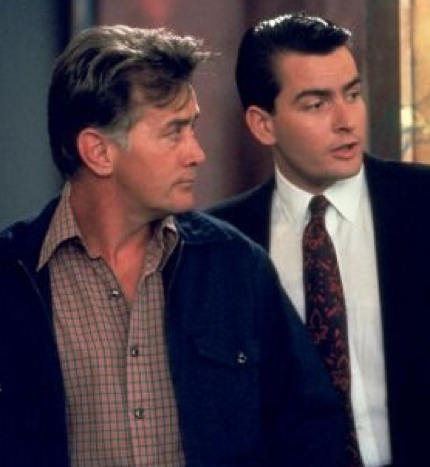
Wall St (1987)
A real-life family dynamic as Martin plays opposite Charlie Sheen as Carl Fox, father of Bud.
The elder Sheen channels his own union-loyal background (he once led a strike of caddies at a golf course over mistreatment by rich players) to bring a sympathetic air of sadness to the old businessman.
Nepotunity: Um, let’s see… Stone gave Charlie Sheen the choice between Jack Lemmon and Marty to play his dad. Sheen made the sensible, pocket money-securing choice and picked his real pop. That said, it was the right choice.
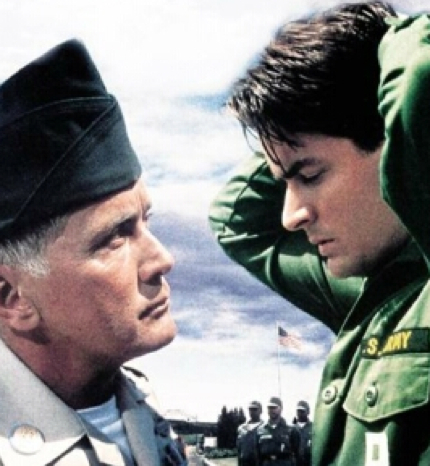
Cadence (1990)
A rare step behind the camera for Sheen’s directorial debut, the story of army private Franklin Bean (Charlie Sheen) who learns his father has died, gets drunk and goes AWOL.
He’s tossed into a military prison loaded with black inmates and run by the bigoted Otis V McKinney (a growly, solid role for a young, up and coming thesp named, er, Martin Sheen). Rebelling against the hatred, Bean bonds with his fellow prisoners, including Laurence Fishburne.
Nepotunity: Did we mention it starred Charlie Sheen? And son Ramon has a smaller role as Corporal Gerald Gessner. We’re surprised Emilio isn’t cleaning the windows somewhere.
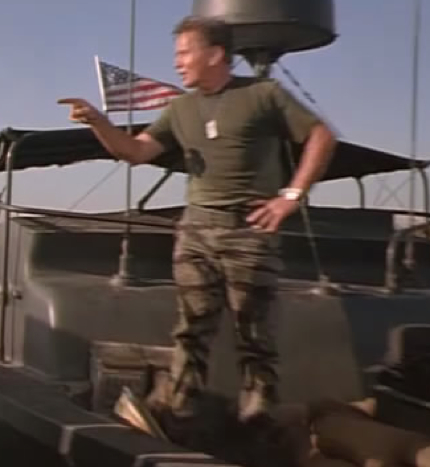
Hot Shots! Part Deux (1993)
All credit to Sheen for spoofing his character in Apocalypse Now, and to Francis Ford Coppola for allowing him to be credited with the same name.
The tiny, laugh-out loud moment where Charlie Sheen’s Topper Harley calls out to Benjamin Willard as they pass each other on riverboats is pure meta-comedy. “I Loved you in Wall Street!”
Nepotunity: The obvious, though this clearly is the best use for it – in the service of making us laugh. And true to the spirit of Jim Abrahams’ work, several of his and writer Pat Proft’s family members also appear.
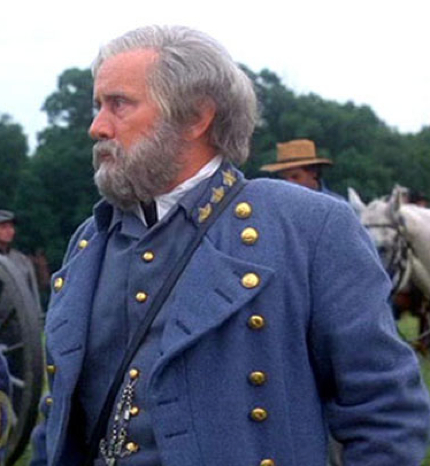
Gettysburg (1993)
An abortive TV movie became a ‘tache-tastic US Civil War drama that found Sheen as General Robert E Lee, who became famous for his victories as leader of the Confederate Army, even though his side lost the eventual war.
It’s a showcase for several thesps, and Sheen gets to show off his oratory skills, proving that he’s rarely better than when he’s delivering big speeches with passion (see later in his career).
Nepotunity: No Sheens, but financial backer (and Civil War buff) Ted Turner gets a cameo.
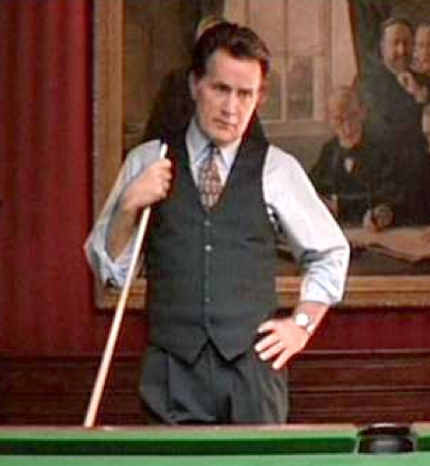
The American President (1995)
Or, as it might as well be known, The West Wing: The Movie. While Sheen has not yet made it to the Oval Office, he’s nevertheless a key player in this Rob Reiner drama.
Sheen shines as AJ MacInerny, chief of staff to President Andrew Shepherd (Michael Douglas). It’s a supporting role, but one which the actor grabs and makes his own, leading writer Aaron Sorkin to keep him in mind for the future.
Nepotunity: No detectible Sheens on camera, but the film is loaded with people who would go on to populate The West Wing, including Nina Siemaszko and Anna Deavere Smith.
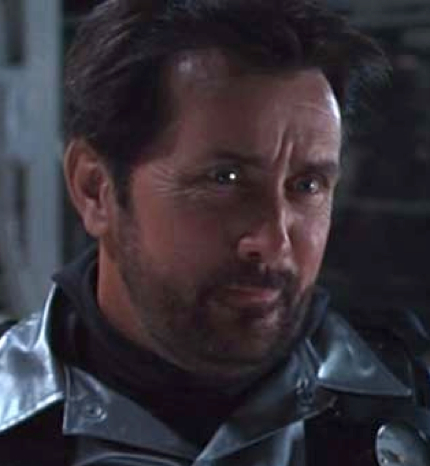
Spawn (1997)
We’re frankly at a loss to explain why an actor of Sheen’s calibre would have agreed to this one. Maybe he needed a mortgage payment, or cash to bail Charlie out of some problem?
Possibly the script was better back when it was being developed, but we doubt it. Sheen’s OTT villain Jason Wynn, who makes a literal deal with the devil, but pays the price. He looks embarrassed for most of the film. He should.
Nepotunity: No Sheen family presence- they’re probably glad they stayed away.
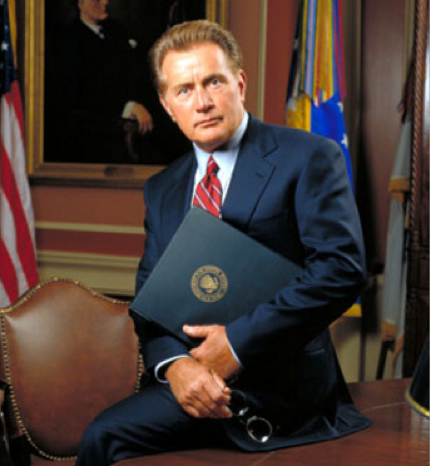
The West Wing (1999-2006)
Josiah “Jed” Bartlett might just be Sheen’s modern defining role. Originally contracted to a few recurring episodes – the show was planned to focus on the staff – Sheen’s scenery-chewing performance in the pilot led to him nabbing a proper lead position.
The ‘Wing might not always have ridden as high as it could, but Sheen kept Bartlett a great character – charismatic, smart, funny and able to deliver a speech like few others.
As comedy news pundit Stephen Colbert once observed, “he is our television president, and he deserves our television loyalty”.
Nepotunity: Renee Estevez had the odd line as one of the president’s secretaries.
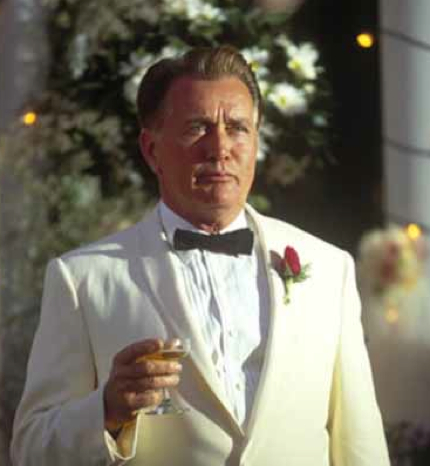
Catch Me If You can (2002)
Despite some quieter years pre-West Wing, Sheen proved with this Spielberg film that he was still in demand by big directors.
Pouring his gruff side into the part, he plays Roger Strong, lawyer father to Carol (Amy Adams) who disowns his daughter until she meets Frank Abagnale Jr (Leonardo DiCaprio), who attempts to con Roger.
Nepotunity: Zero Sheen power is present. Max Spielberg gets a cameo, though, as does the real Abagnale Jr.
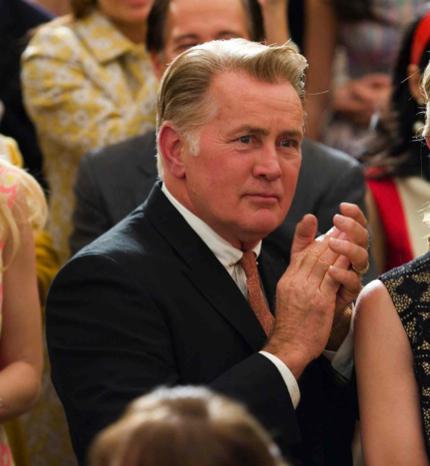
Bobby (2006)
Sinking once more into a sprawling ensemble, Martin does son Emilio Estevez a favour and crops up in his directorial debut. It’s not like he needed the help, though – it’s a solid drama based around the assassination of democratic presidential candidate Robert F Kennedy in 1968.
Sheen senior nabs a small role as Bobby’s campaign manager Jack.
Nepotunity: Emilio appears himself, but besides the pair of them, no other Sheens were tapped to appear.
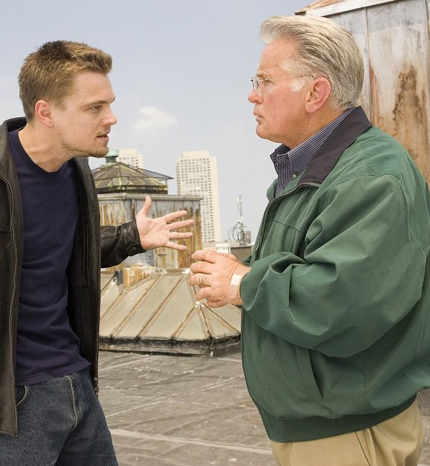
The Departed (2006)
Again with the legendary directors as Sheen scores a pivotal role in the tale of traitors, cops and mobsters that would go on to win Martin Scorsese his long-deserved Oscar.
Sheen plays Captain Oliver Queenan, who assigns copper William Costigan (Leonardo DiCaprio) to infiltrate Jack Nicholson’s criminal gang. It doesn’t end well for Queenan – cornered by mob men, he’s thrown from a roof to die at the feet of Frank Costello (Nicholson). It’s still a great performance.
Nepotunity: Zilch, which is surprising, since Mark Wahlberg was able to get his brother Bob a part. And Marty’s daughter Francesca appears also.
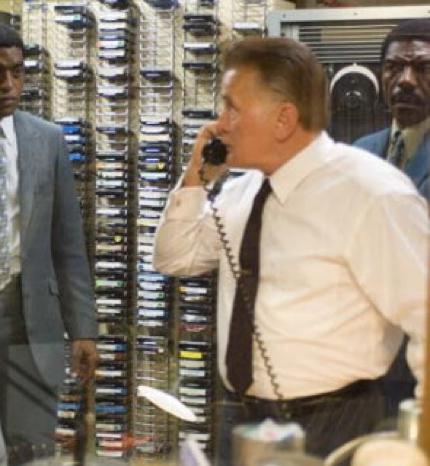
Talk To Me (2007)
What is it about Sheen and characters that have racial issues? Despite his comfy, liberal activist side, he’s often called up to play men who make trouble for black heroes.
In Talk To Me, he’s EG Sonderling, the owner of the radio station where Petey Green (Don Cheadle) wants to work. Begrudgingly, he gives him a shot – but pales when Green starts voicing real opinions instead of blindly sticking to the playlist/patter format.
Nepotunity: Just the one Sheen this time around.
James White is a freelance journalist who has been covering film and TV for over two decades. In that time, James has written for a wide variety of publications including Total Film and SFX. He has also worked for BAFTA and on ODEON's in-cinema magazine.


